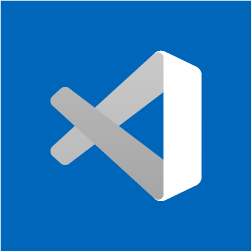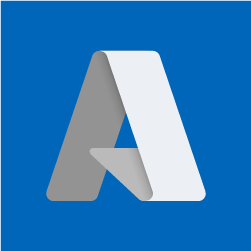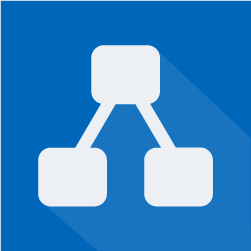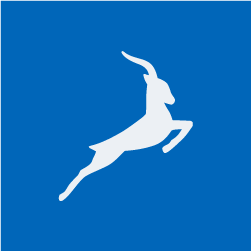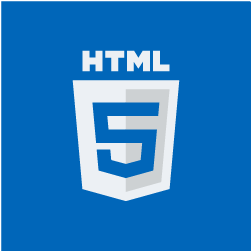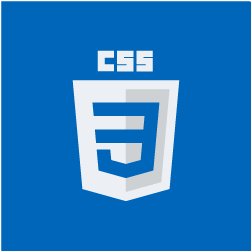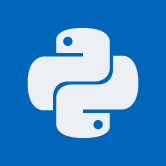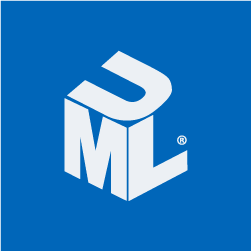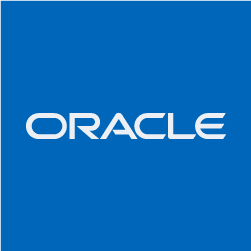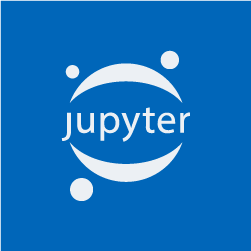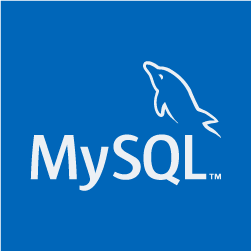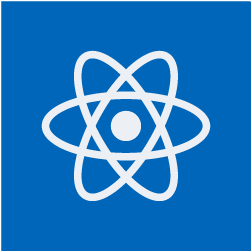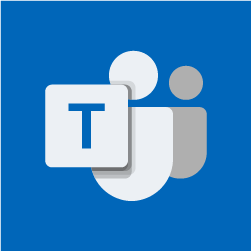Master of Information Technology (Computer Science)
1.5 – 2 years full-time or part-time equivalent
Duration
Course overview
Lay the foundation for all computing disciplines
Our world is more interconnected now than it’s ever been. Computer science – encompassing the study of computing hardware and software – lies at the heart of this acceleration towards innovation.
The Master of Information Technology (Computer Science) is a multi-faceted qualification with a flexible course structure allowing you to major in computer science. You will explore a range of topics including network security, software development and applications, algorithmic processes, data structures, JavaScript programming, and the UX design principles that inform the development of clean and accessible user interfaces.
This course will open up a range of exciting career opportunities, and you will find yourself well-placed to work for a range of IT service providers, consultancies and vendors.
Why this course
The Master of Information Technology (Computer Science) gives you an understanding of the core principles underlying computer science. The skills you acquire are highly transferable and sought after in government departments and a host of private-sector industries.
Accreditation
This course is accredited by the Australian Computer Society (ACS)
Skills
All skills gained during this course are highly transferable to multiple industries
Rankings
QUT is ranked in the top 50 universities in the world for employer–student connections
Course units
Students need to study a total of 21 units:
10 – Core micro units (Graduate Diploma in Information Technology [Computer Science] units)
7 – Core standard units
4 – Elective standard units
6 credit points
6 credit points
6 credit points
6 credit points
6 credit points
6 credit points
6 credit points
6 credit points
6 credit points
6 credit points
12 credit points
12 credit points
12 credit points
12 credit points
12 credit points
12 credit points
12 credit points
12 credit points
12 credit points
12 credit points
12 credit points
12 credit points
12 credit points
Entry requirements
You can gain entry into the Master of Information Technology (Computer Science) through the following two pathways:
2-year program
- A recognised bachelor’s degree (or higher) in any discipline with a minimum grade point average of 4.0 (on QUT’s 7 point scale).
1.5-year program
- A recognised bachelor’s degree (or higher) in IT with a minimum grade point average of 4.0 (on QUT’s 7 point scale)
or
- a recognised bachelor’s degree (or higher) in any other discipline with a minimum grade point average of 4.0 (on QUT’s 7 point scale) plus three years of full-time professional work experience in IT.
Course outcomes
You will learn to employ an adaptable and creative digital skill set to craft better ICT solutions for discipline-specific problems. You will also cultivate advanced knowledge of computer science and its applicability within organisational and business contexts. The analytical skills you develop will help you evaluate business practices and investment strategies to solve complex problems in business improvement projects.

Skills and tools in this course
- Problem-solving
- Computer science expertise
- Core Body of Knowledge
- Analytical skills
Visual Studio
Visual Studio is an integrated development environment (IDE) from Microsoft used to create powerful and scalable applications, programs and websites. It allows you to use almost any programming language to edit code, create designs and debug applications on your preferred platforms and devices. Join the millions of developers worldwide using Visual Studio’s flexible and collaborative features.
Tableau
Tableau is the market-leading analytics platform that transforms the way we use data to solve real-world issues. The platform is the top choice for modern business intelligence and helps organisations visualise data and share insights that make real, impactful change. It’s used by influential companies such as Lenovo and Lufthansa Airlines.
Microsoft Azure
Microsoft Azure is a public cloud platform that is used for virtual computing, analytics, storage, networking and much more. Azure is comprised of more than 200 products and cloud services, and is fast becoming a central platform for industries to innovate their technological capabilities, including healthcare, financial services and banking, manufacturing, gaming, retail and government.
Lucidchart
Lucidchart is an intelligent diagramming application that allows teams to work together on shared projects. The application allows you to draw plans and create flowcharts and diagrams, and also offers businesses a secure way to store, plan, collaborate and visualise data all in one place. It’s popular among companies such as Google, Amazon and Atlassian.
Draw.io
Draw.io allows you to easily create, edit and style diagrams using an intuitive interface. The open-source, cross-platform software enables collaboration on diagrams and whiteboards, and offers unique features like real-time Confluence-native collaborative editing.
Signavio
Signavio offers intuitive, cloud-based, professional process modelling and allows businesses to document, model, design and simulate workplace processes. The platform helps you to speed up process modelling and determine how certain changes will impact process outcomes.
HTML
Hypertext Markup Language (HTML) is a central technology used to build websites. HTML allows you to organise the structure of a page forms an essential foundation of your web development skills. It is used across websites world-wide.
CSS
Like HTML, Cascading Style Sheets (CSS) is another primary technology used to build websites. CSS helps you create the layout of a web page. CSS forms an essential foundation of your web development skills and is used across websites world-wide.
Python
Python is a versatile computer programming language that is commonly used for machine learning, building websites and software, automating tasks, and conducting data analysis. Python is one of the most well-known programming languages for software developers and data scientists around the world. Most modern tech companies rely on Python every day, including Instagram, Google, Spotify and Netflix.
Unified Modelling Language (UML)
Unified Modelling Language (UML) is a developmental modelling language used by software developers to visualise and design new systems. UML is used in various fields and is useful to help a team visualise projects from start to finish.
Oracle Database
Oracle Database The Oracle Database is the first converged, multi-modal database management system designed for enterprise grid computing. It’s used to store and retrieve data and is key to running online transaction processing and solving common issues for information management. Oracle VirtualBox Oracle VM VirtualBox is a powerful cross-platform virtualisation software tool. It’s intuitive and allows you to set up your computer to run multiple operating systems, including Microsoft Windows, Mac OS X, Linux and Oracle Solaris. As one of the oldest companies to provide database management solutions, Oracle focuses on keeping up to date with the latest technological trends.
Jupyter Notebook
Jupyter Notebook is a web-based interactive development environment for notebooks, code and data. It has a flexible interface that allows you to configure and arrange workflows in data science, scientific computing, computational journalism and machine learning. Jupyter Notebooks is used by large-scale companies such as Trivago, Delivery Hero and Yelp.
Anaconda
Anaconda is a distribution of the Python and R programming languages for data science and machine learning that simplifies package management and deployment. With thousands of open-source packages and libraries, it's very popular among modern programmers.
SQLite
SQLite (Structured Query Language) is the most used database engine in the world. SQL codes are built into most mobile phones, computers and applications and are used by several large-scale companies around the world, including Adobe, Airbus, Apple, Facebook and Google.
React
React is an open-source JavaScript library developed by Facebook and is used to build fast user interfaces for mobile and web applications. It’s widely used within the technology industry and is one of the most commonly used front-end libraries for web development. React is popular with tech giants like Facebook, Netflix, Airbnb and Uber.
R and RStudio
R is an open-source software program used for statistical analysis. You can use R to write a program and run the code independently of any other computer program. RStudio, used alongside R, is an open-source integrated development environment. It allows you to clearly see graphs, data tables, R code and output. Both R and RStudio offer advanced statistical methods and algorithms.
Microsoft Teams
Microsoft Teams is a digital hub for modern businesses across the world. It’s been central to workplaces adapting to hybrid work environments and allows you to collaborate, meet and share files at a click of the button. By familiarising yourself with Microsoft Teams early on, you’ll be setting yourself up for success as you enter the workforce.
Potential career opportunities
Programmer
Implement integrated software and application solutions that solve organisational ICT-related problems.
-
Average Salary
$115,000
-
Industry Job Satisfaction of
4/5
-
Industry Growth
+27%
Projected job growth in next 5 years
, 2025
Systems engineer
Cultivate advanced knowledge of computer science and its applicability within organisational and business contexts.
-
Average Salary
$120,000
-
Industry Job Satisfaction of
4/5
-
Industry Growth
+22.2%
Projected job growth in next 5 years
, 2025
Network architect
Plan, design and implement data communication networks that meet the organisations' needs.
-
Average Salary
$160,000
-
Industry Job Satisfaction of
4/5
, 2025
Information technology specialist
Analyse, test, troubleshoot and evaluate existing network systems and software applications to achieve business or IT goals.
-
Average Salary
$80,000
-
Industry Job Satisfaction of
5/5
, 2025
How online study works
Learn in your own way
Experience the unwavering support of our university as you embark on your online learning journey.
- Flexible and supportive options for your lifestyle
- The easy application and enrolment process
- Alignment with career aspirations
What our students say
I chose to study at a postgraduate level online due to flexibility. Studying online has given me the ability to live on the Sunshine Coast without the commute to Brisbane, giving me more time to focus on studying and working part-time. I love the option to study on the beach!Tayla, Graduate Certificate in Information Technology

Ready to apply?
Apply for your dream qualification by filling out our application form, or speak with one of our Course Consultants on 1300 104 196 to discover the right study option for you.
Information Technology (IT)

Is a Master’s in Computer Science the right choice for you?
Find out if studying a master in computer science online is the right move for your career. Learn how studying online can offer you new employment opportunities, better pay in the short term, and how more expertise leads to better outcomes over time.

The benefits of earning your computer science degree online
How can you learn computer science effectively while working full-time and balancing other commitments? Find out how QUT has made online study easy.

Lifelong learning in the age of automation
As technology evolves and career pathways change, lifelong learning has become increasingly important. By upskilling for the future of work today, you will set yourself up for a dynamic career in the workplaces of tomorrow.

UX design principles: Creating intuitive digital experiences
Great UX keeps users engaged, builds trust, and drives success. It’s more than design—it’s a necessity. Prioritise UX to stand out in the digital world.
Frequently asked questions
We do have a shortened master’s program for eligible applicants. Please see the entry requirements for this course.
Yes, CSPs are available for all Information Technology courses, including bootcamps. CSPs allow domestic students to have a significant portion of their university or higher education fees subsidised by the Australian government.
Got a question?
Contact us on our enquiry form
Contact UsBy submitting this form, you understand that QUT is collecting your personal information. Refer to the Privacy Collection Notice for more information.
If you’re not ready to apply or want to know more before you submit your application, you can request more information by calling us on 1300 104 196 or by completing our enquiry form.
Ready to apply?
Apply online by filling out our application form or speak to a Course Consultant on 1300 104 196.
Talk to us
Get in touch with one of our support staff who are always ready to guide you.
9am – 5pm AEST Monday to Friday
Book a call today
